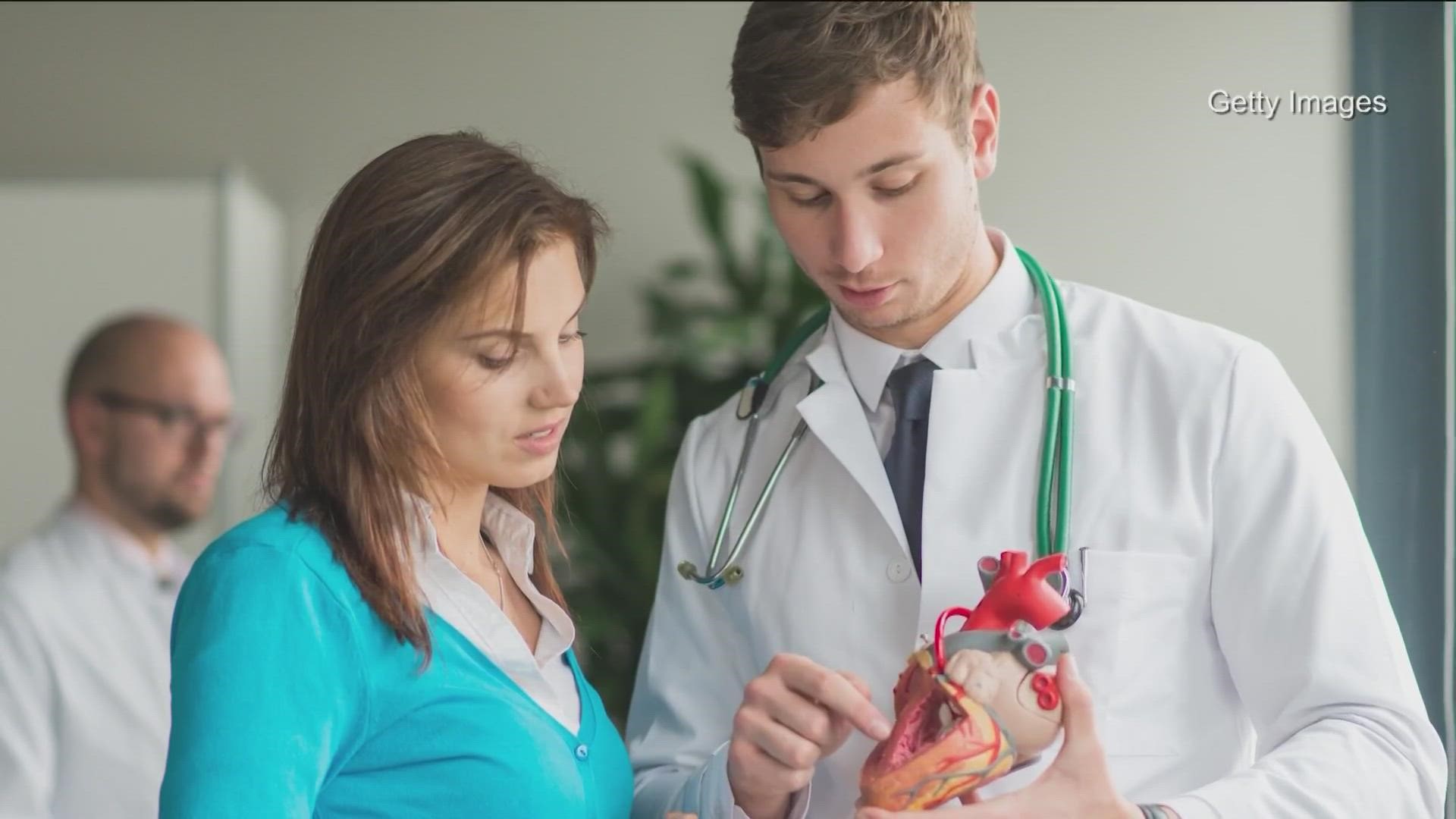AUSTIN, Texas — Throughout American Heart Month, it's important to be aware of the signs and symptoms of cardiovascular disease.
Dr. Anne Mani, a cardiologist with the Heart Hospital of Austin and Austin Heart, said while heart disease impacts everyone, it's especially significant for women.
According to the American Heart Association, heart disease is the leading cause of death among women in the nation. Due to this, Dr. Mani says it's important to raise awareness, as some women tend not to realize they're at risk for heart disease.
"A lot of the research that we do for heart disease is done in men because men are more likely to participate in clinical research than women. So a lot of this the data we have in terms of the treatments for heart disease are based on data we have for men rather than for women," said Mani.
Women tend to have atypical symptoms when they're developing heart attacks and they're less likely to have chest pain.
"Which is kind of what we consider as classic for heart attacks. Women are more likely to have shortness of breath, sweating, nausea, kind of an indigestion-type discomfort or arm discomfort. So they may not realize they're having a heart attack until much later than men, who are more likely to have the presenting symptom of chest pain," said Mani.
There are certain things that increase risk for developing heart disease, like high blood pressure, diabetes, high cholesterol and smoking. Also, if a woman has a family history of heart disease, they would be considered a high risk factor. Mani said those are things that doctors can try to modify early on and at least be more aggressive in trying to prevent heart disease later.
"It used to be more typical to see women in their 50s and 60s starting to develop heart disease. But because of obesity, we're starting to see more women developing heart disease earlier on in life. So we're trying to kind of get women established earlier in life, you know, in their 30s, 40s, to kind of get evaluated for heart disease and get treated for the risk factors that could increase their risk for developing heart disease," said Mani.
Health officials say if you're concerned about a symptom, it's always better to get it checked out because you don't know for sure until you get evaluated whether it is something real or not.
"I always advise women, because a lot of women will say, 'You know, I thought it was just indigestion.' So, you know, they're kind of dismissing their own symptoms until it gets to the point where it becomes severe. And so it's always better to get it checked out earlier rather than later," said Mani.

